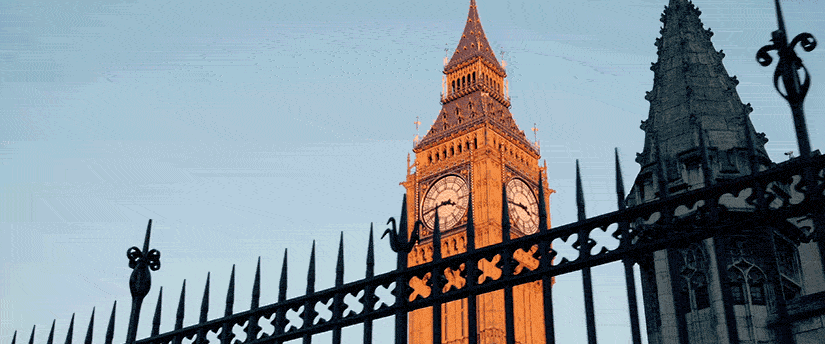The UK’s general elections are on July 4, and all analysts and market participants expect Sir Keir Starmer, the leader of the Labour party, to win a landslide victory.
Criticized by those on the right for doing whatever it takes to be in power and those on the left for not being bold enough to change things, Starmer has alienated some of his voters but gained respect by others who see him as managerial and dutiful—the right man for the job.
As a lawyer, he served as chief prosecutor for England and Wales between 2008 and 2013 and was knighted for his role leading the Crown Prosecution Service. Tories have often used his title often, Sir Keir Starmer, so they can paint him as elite.
“A vote for Labour is a vote for stability — economic and political,” Starmer said after incumbent Prime Minister Rishi Sunak called the election on 22 May.
Opinion polls may have been wrong before, but whatever they are worth, they give Labour a 20% lead, which suggests that Starmer will become Britain’s first Labour prime minister since 2010.
PartyBritain needs change and British people have made it obvious that they have lost faith in the Conservative party.

Latest poll from Economists for UK Elections
Overall, multiple opinion polls in Britain have shown that the Labour Party is on track to win the popular vote by a massive margin. In the following poll by the Economist and WeThink, a polling firm, the votes are translated into seats via a statistical method called multi-level regression and post-stratification (MRP).
The mega-poll has found that Labour is on track to win 465 of the 632 seats in England, Scotland, and Wales, winning the biggest majority since the Second World War. The ruling Conservative Party, which won 365 seats in 2019, will drop to a mere 76, the fewest in its history.
Why did voters lose faith in the Conservative party?
There are a few things that come to mind. For one, Brexit has not helped at all. Partygate, Liz Truss’s chaotic mini budget with £45 billion of unfunded tax cuts and, last but not least, the latest gambling scandal have reinforced the public’s distrust towards not just the Tory party but politicians in general. The image of the Tories has indeed been crumpled and tarnished.
Brexit has slowed down Britain’s economy, has undermined faith in the party’s competence, raised taxes, and brought living standards down. Promises of lower immigration and a better NHS have been shattered. Voters have lost faith in the Conservatives and have no idea any longer what the party stands for.
The pound has weakened by 14% in the past 14 years as a result of Brexit and Truss’s mini-budget.
The gambling scandal is not a passing matter either. Threatening to engulf the Labour party too, it started when, on 12, it was revealed that Craig Williams, Rishi Sunak’s closest parliamentary aide, was under investigation by the Gambling Commission for betting on a July election, just three days before Sunak called the election. Since then, four more Tories and one Labour candidate have been investigated.
Tory and Labour campaigners emphasised that the scandal has damaged the government as Tories have used insider information to gain advantage, while it projected the idea that politicians are at liberty to break the rules, unlike the rest of us. It also recalls the ways Boris Johnson’s government was rocked by Partygate and how this led to its fall.
Who are the major parties in the UK election?
Apart from Labour’s Keir Starmer and the Conservatives Rishi Sunak, we have populist and Brexiteer Nigel Farage leading Reform UK, the Liberal Democrats with Ed Davey, the Greens with Carla Denyer and Adrian Ramsay, and the SNP with John Swinney.
The big issues
From the economy to health care and immigration, voters want to see change and improvement in their living conditions, access to health care, housing and jobs. The Conservatives have pledged £17 billion in annual tax cuts, while Starmer has focused on
public spending to improve services and create green jobs. Greens promised to tax assets above £10 million, and the Lib Dems have stressed their commitment to economic recovery.
On the heated immigration issue, where anti-immigration Reform UK hopes to persuade voters, Farage has promised to return migrants to France if it is needed. The Gaza and Israel-Palestine conflict is also a key issue, and Starmer has been criticised for his support for Israel.

UK Elections: How will the pound react?
Markets expect Labour to win with a majority, and because they have promised continuity in terms of current policies, with their manifesto providing a very tight budget without any surprises, markets are not worried and don’t expect any unwelcome market volatility.
However, as we get closer to the elections and as the gaps narrow in the polls, the pound may become slightly more volatile ahead of the UK election. Indeed, with Labour securing a sizeable majority (70+ seats), as it is currently priced by markets, analysts don’t expect high volatility.
If Labour wins with a small majority or the vote results in a hung parliament, something that is not currently anticipated, the pound may weaken.
Such a result would suggest that voters have either supported the Lib Dems or Greens, as some of Starmer’s policies are less traditionally left and more centrist. Polls suggest that his move towards the centre has cost his party the support of younger voters who would prefer to support smaller parties such as the Greens.
On the other hand, Reform UK stands to win over disgruntled Tory voters who are worried about immigration. While Farage’s supporters are spread across the UK, they could split the right-wing votes and weaken the Tories.

Starmer may be good for the pound
Starmer will face challenges ahead, especially as voters have lost faith in politicians being in it for themselves, but he will have to rebuild the trust of the people and handle things differently. Markets tend to favour Conservative governments but also Labour governments—let’s not forget Tony Blair’s landslide victory in 1997, Labour’s biggest general election victory in history. Starmer’s potential victory may end a long period of Conservative rule, but it may also provide stability and certainty for markets and the pound.
How will the pound fair with Keir Starmer as the next occupant of Number 10 Downing Street? Well, analysts tell us not to expect any big surprises. Back in 1997, Tony Blair, celebrating his landmark election victory over the Conservatives, cheered: “A new dawn has broken, has it not? And it is wonderful.” Starmer will inherit a weaker, poorer Britain and work harder than his predecessors. Will he be up to the job?

